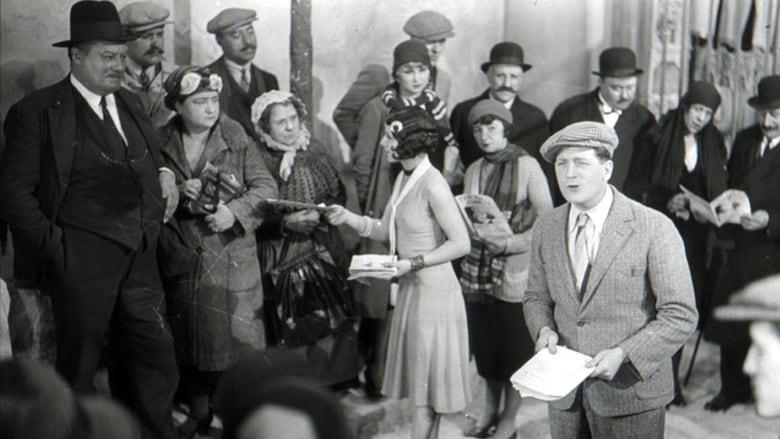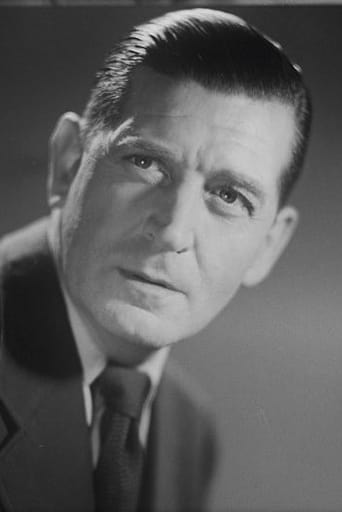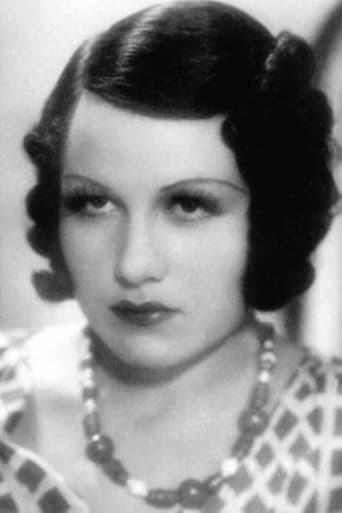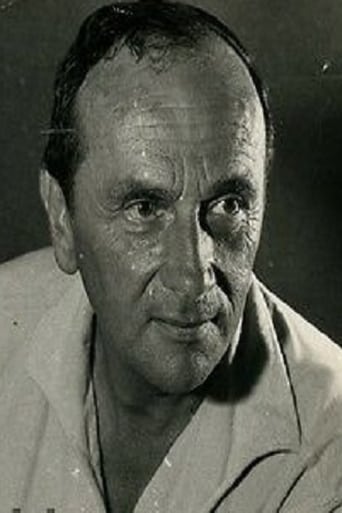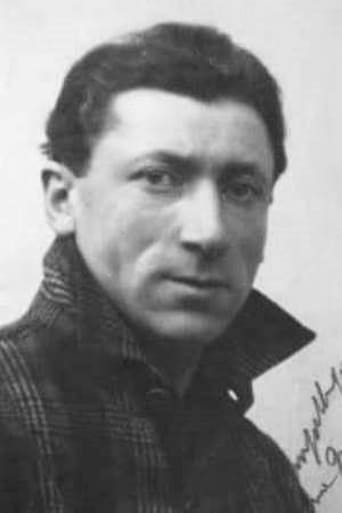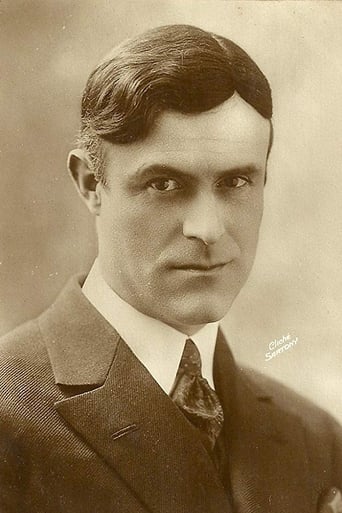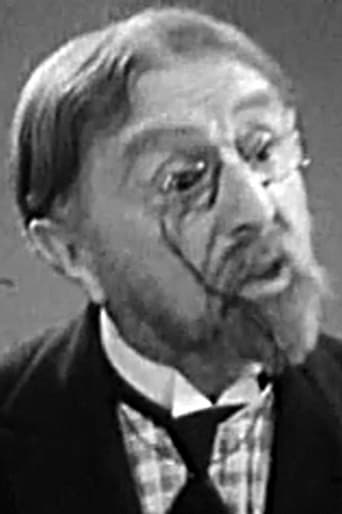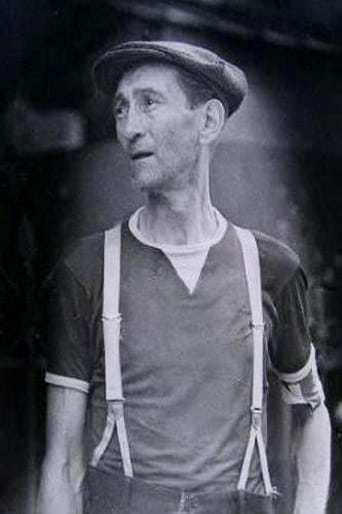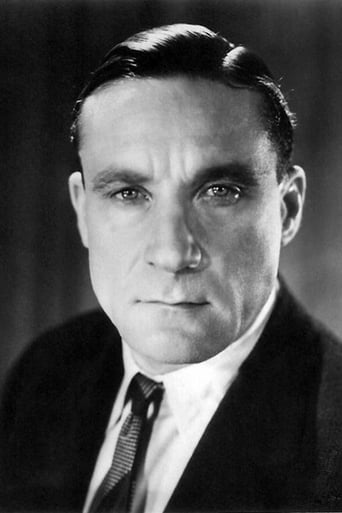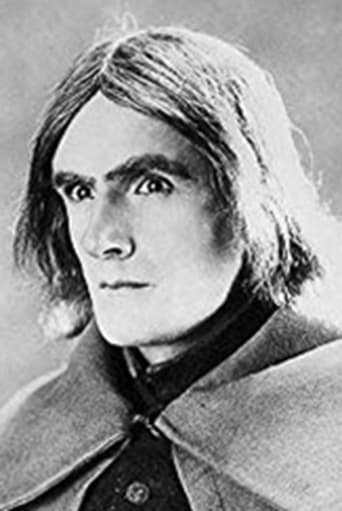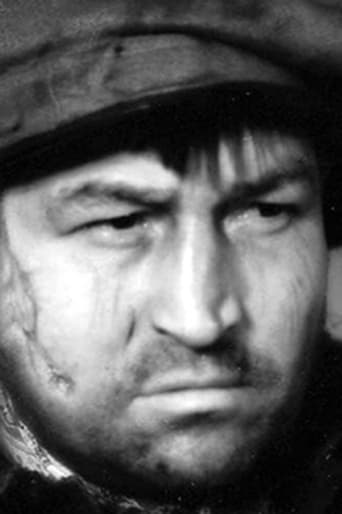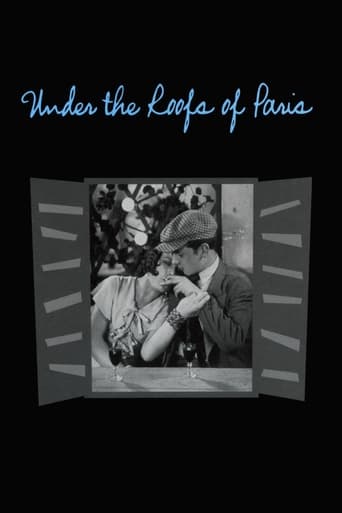
Under the Roofs of Paris
December. 15,1930In the tenement slums of Paris between the world wars, impoverished street singer Albert yearns for beautiful Romanian immigrant Pola. Pola's boyfriend, local hoodlum Fred, grows jealous of Albert's constant attention to his woman and frames the hapless musician for one of his own petty crimes. But while Albert is in prison for Fred's misdeed, Pola ends up falling for Albert's faithful best friend, Louis.
Similar titles
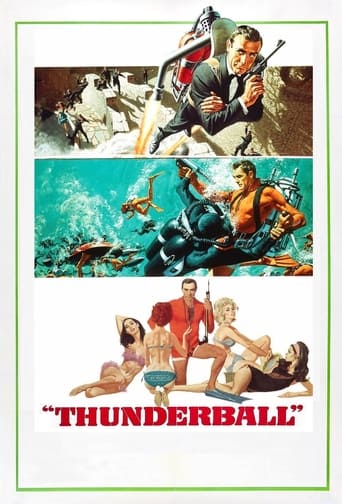
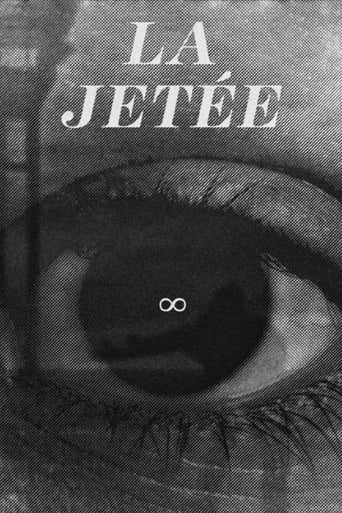
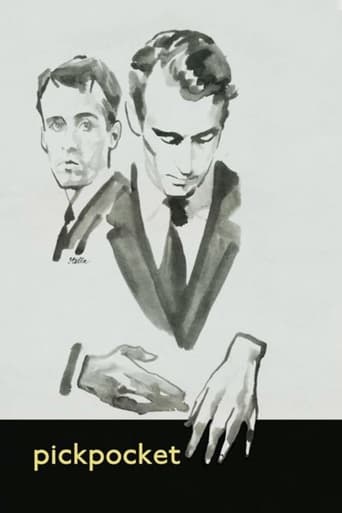

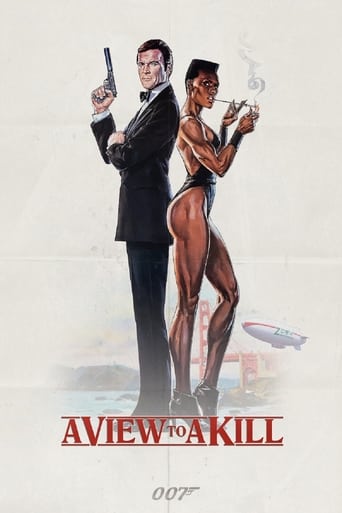
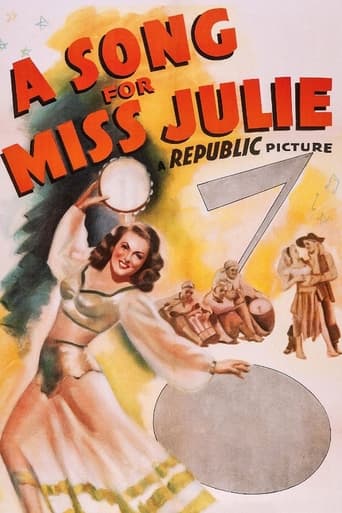
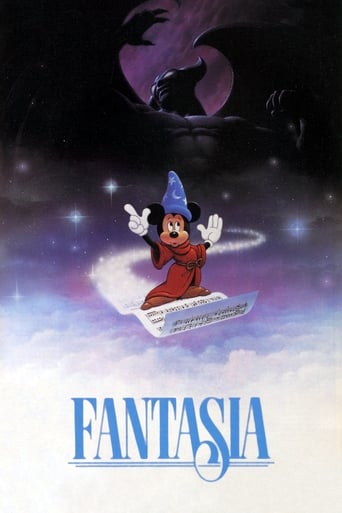
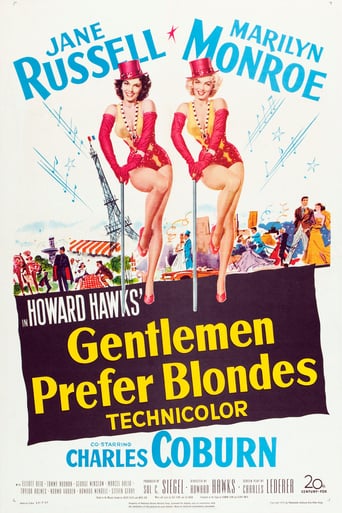
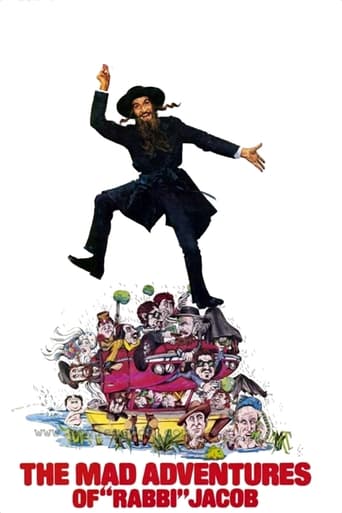
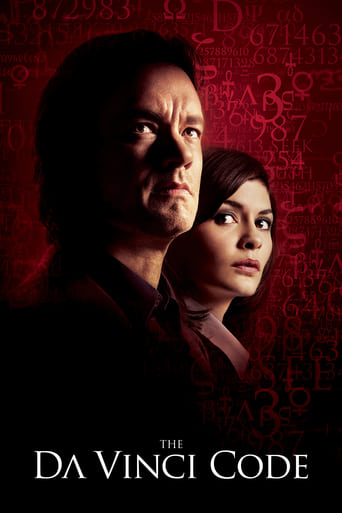
Reviews
Best movie of this year hands down!
Boring
This story has more twists and turns than a second-rate soap opera.
At first rather annoying in its heavy emphasis on reenactments, this movie ultimately proves fascinating, simply because the complicated, highly dramatic tale it tells still almost defies belief.
Having been highly impressed by "Le Million", I decided to check out Rene Clair's other acclaimed musical comedy, "Under the Roofs of Paris". I can happily assure you that this film was even better than "Le Million" in almost every single way. It amps up the heart and humor, has a much stronger emotional impact, and, while "Le Million" felt like a purely plot driven film, "Under the Roofs of Paris" balances plot and character to near perfection.This hilarious love story unfolds slowly and steadily, introducing the audience to different characters and places without rushing everything. We watch and learn before the plot strikes us like a lightning bolt of beauty. Rene Clair's camera beautifully glides through the streets of Paris, following characters and peaking in on their most fragile moments. This film is like the finest work of literature; it contains laughs and tears, moments of melancholy and hope. It is, simply, a masterpiece.
This story follows the fortunes of Parisian petty street criminals, and, in particular, street busker Albert (Albert Prejean). He falls in love with Pola (Pola Illery) but things don't work out as he plans....This is a good film despite being full of detestable characters. Albert's best friend steals his girlfriend and is quick to fight with him, and another colleague is a pick-pocket who is responsible for sending him to jail. Then there is Fred (Gaston Modot), a womanizing leader of a street gang. Fred is also involved with Pola and he remains a nasty piece of work throughout the film. However, worst of all is Pola - what a slag! She sleeps with everyone and seems to have no loyalty. She leads Albert on and doesn't let him score with her in his bedroom. She sends very mixed signals.This bunch of no-gooders ensures that we sympathize with Albert and root for him throughout the film as he is the only character that shows us any decency. He is far too good to be mixed up in the life that he leads. The way that the film ends can only be seen as a blessing for him.The film is half silent and the use of sound and silence is effective in each particular section, eg, the fight scene which also contains a funny moment - watch as Albert is offered a selection of knives for his fight with Fred. He inspects them all and rejects them all with an air of superiority before giving Fred a quick slap around the head and starting the fight. Even though the film is French and so the talking sections sound like "hongh-hi-hongh-hi-hongh", this is an entertaining film with some excellent camera shots and a catchy main song.
For René Clair's influential film Sous les toits de Paris, sound and action were put together in a way that should have set an example for the impending technological developments that were about to take over cinema. Clair's concern for "talkies" was not one which totally denounced the use of sound in film, it only viewed it skeptically so as not to lose cinema's essence. Clair instead adopted a skepticism of talkies so that the art of cinema, his "new medium of expression" or "new poetry", would not be sold out to the masses of audiences looking for a thrill, or big industrialists looking to make big bucks at the box office. René Clair used so many original and striking combinations of sound and image in this film. There are a few most notable that I wish to discuss. The moments I vividly remember in Clair's movie all involve either movement of the camera or the relationship between sound and image. I greatly admired the use of the train and shots around the fight in the alley that heightened the excitement and anticipation. When the alley fight breaks out, we view at first from behind a pole, then from behind a fence with smoke, then in complete darkness. At every subsequent shot we lose more and more information as to what is happening. This is accompanied by the sound of a chugging train, pulling through loud and fast, which serves to describe the rough action but not lucidly identify it. This convention takes our auditory sense of the fight away as well. This loss of senses of the visual and audio correlation is a technique which sparks our imagination and lets us "fill in the blanks" or draw possible conclusions as the scene plays on. It is impossible to not wonder who is winning, was Albert stabbed, who will be hurt etc. because there are no perceptual clues to give us a hint. This beckoning for the audience's imagination is the heart of Clair's vision. Most of the conversations between characters are treated in the same fashion. Whether the sound is shut out by the closed café door (as in the scene between Albert and Louis rolling dice for Pola), or by the lowering of dialogue to an inaudible whisper (as in Albert whispering to Pola and her replies of "no."), or in the confines of the non-diegetic sound filling the scene (like when Fred and Pola argue in the bar but the bar noise outweighs their fight), the audience is left to make up the dialogue themselves. Clair's ability to leave the useless talking out and still create wonderful soundscapes and captivating excitement is a point of artistic praise for Sous les toits de Paris. More evidence for Clair innovative use of sound and picture is in the alarm clock scene. In the scene, after Pola and Albert are waking up from the night before, we see Pola sleeping in Albert's bed and Albert on the floor. Suddenly, an alarm rings and wakes them up, but the camera cuts to Pola's high heel shoes on the floor next to Albert. Albert reaches over and taps the shoes- and the alarm shuts off. Viewers, (myself included) are confused until the shot is drawn back and we see Pola reaching over to turn off the true alarm clock. Moments like this are bits of creative brilliance that serve to trick us and keep us aware of the sounds we are hearing in relation to what we are watching.René Clair used the capabilities of synchronized sound in moderation in order to hold the qualities of silent film but still incorporate new technology. His use of sound was used creatively, to parallel the action, trick the audience, or make the visuals altogether striking. The auditory ambiguity is created with a purpose that stays true to the art of cinema.
--- this film changed my views on b&w, i first saw this when i was a wee lass of 13, awkward and shy, all i had to do with myself was watch late- night t.v. i cried so hard at the end of the film i thought for sure i'd wake my mum, thank god CBC showed it again not long after that, and like the big geek i was, and probably still am, i taped it, i liked the rawness of it, the sound wasn't very good, but it didn't matter, still doesn't, i would love to make a movie that has this same feeling the absolut "realness" i dislike the crud hollywood keeps churning out, but , the fact remains that i live in this time, and am almost forced to swallow the disgraceful porridge that is cinema. it's christmas day, i think i'll go slip on my "under the rooftops of paris" and dream of a time when film still had a heart!!
Top Streaming Movies











